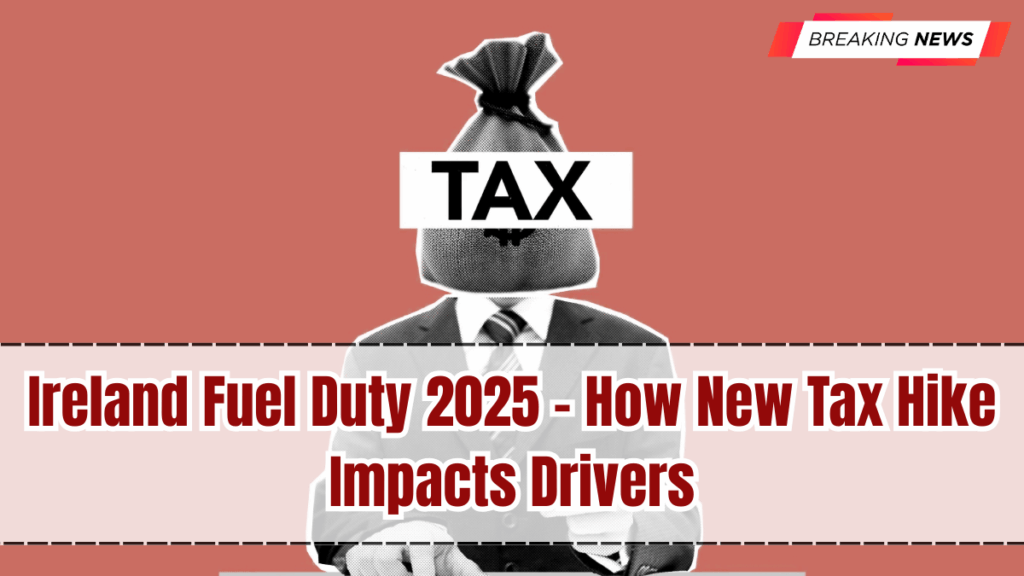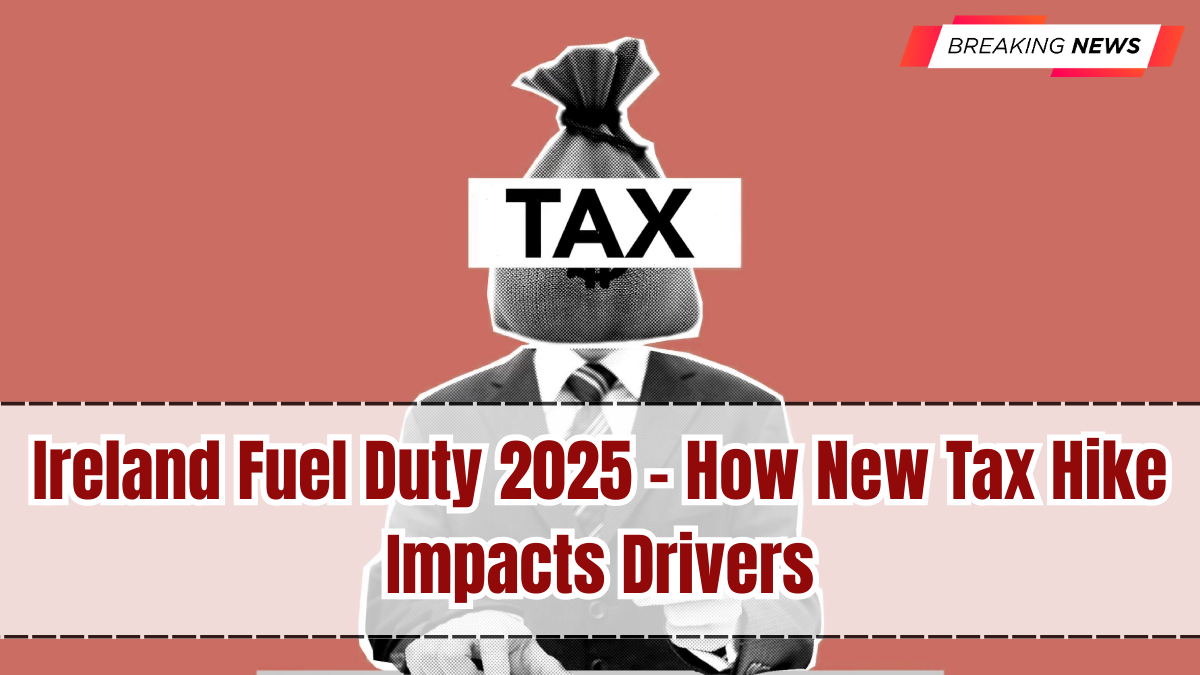Irish motorists are facing another round of rising costs in 2025 as the government implements a new hike in fuel duty. The Ireland Fuel Duty 2025 update means that petrol and diesel prices have climbed once again, adding to already high transportation expenses for households and businesses. This increase is part of the government’s ongoing effort to reduce carbon emissions, encourage electric vehicle adoption, and align with EU climate targets.

Why Fuel Duty Increased in 2025
Fuel duty in Ireland has always been a key part of government revenue, but in recent years, environmental policy has become the main driver behind tax hikes. The Ireland Fuel Duty 2025 changes reflect:
-
Climate Action Plan – The government aims to reduce road transport emissions significantly by 2030.
-
Carbon Tax Integration – Fuel duty hikes are tied to annual increases in carbon taxes.
-
Revenue Generation – Rising duties help fund public transport and EV infrastructure projects.
-
EU Commitments – Ireland is obligated to meet strict emissions reduction targets under EU law.
By raising duties, the government hopes to accelerate the shift toward EVs and hybrids, while discouraging reliance on petrol and diesel vehicles.
Current Duty Rates in 2025
As of September 2025, the new duty rates are:
-
Petrol: Increased by 7 cents per litre, now averaging €1.92 per litre at the pump.
-
Diesel: Increased by 6 cents per litre, averaging €1.86 per litre.
-
Carbon Tax Impact: Adds roughly €2 to every 40-litre tank of fuel.
The Ireland Fuel Duty 2025 rise has pushed national averages close to record highs, sparking debate about affordability and fairness.
Impact on Households
For an average household car consuming 50 litres per week, the fuel duty hike adds about €3.50 weekly or €180 annually to expenses. Families who commute long distances or own multiple vehicles will feel the increase even more sharply.
Rural households are disproportionately affected, as many rely on cars due to limited public transport options. Critics argue that while urban drivers can more easily transition to EVs or public transit, rural residents bear the brunt of higher costs without practical alternatives.
Impact on Businesses
Businesses, particularly in logistics, farming, and delivery services, face significant cost increases under the Ireland Fuel Duty 2025 system. A small delivery company consuming 2,000 litres of diesel monthly now pays an extra €120 each month, squeezing already tight margins.
Some businesses are responding by:
-
Passing costs to consumers through higher prices.
-
Exploring electric vans and hybrid fleets.
-
Using fuel management systems to reduce consumption.
The government argues that while costs are rising, long-term benefits will come from transitioning to cleaner transport solutions.
Comparison with EU Countries
Ireland’s fuel duty rates are among the higher in Europe. In September 2025:
-
Germany: Petrol averaged €1.88 per litre.
-
France: Around €1.83 per litre.
-
Spain: Considerably lower at €1.65 per litre.
This means Irish drivers are paying more than many of their EU counterparts, a point of contention among consumer advocacy groups.
Government Justification
Officials insist that the Ireland Fuel Duty 2025 hike is necessary to fund environmental initiatives and reduce emissions. Revenue generated will go toward:
-
Expanding the EV charging network nationwide.
-
Supporting public transport infrastructure.
-
Funding EV purchase grants and green energy projects.
The government also points out that EV owners are not subject to fuel duty, making the switch financially attractive in the long run.
Public Reaction
Public reaction has been mixed. Environmental groups welcome the move, calling it an essential step toward achieving carbon neutrality. However, many drivers view the increase as unfair, especially given rising insurance, road tax, and NCT costs.
Protests from farming and transport groups have already emerged, with calls for exemptions or subsidies for essential industries. While the government has shown some willingness to consider relief measures, no broad exemptions have been granted.
Long-Term Outlook
The Ireland Fuel Duty 2025 increase is unlikely to be the last. Further hikes are scheduled as part of the Climate Action Plan, with annual adjustments planned until at least 2030. Analysts expect petrol and diesel costs to remain elevated, reinforcing the government’s message that investing in EVs is the best long-term option for Irish motorists.
In the short term, however, drivers and businesses must absorb higher costs, making affordability a central political issue leading up to the next general election.
FAQs
How much did fuel duty increase in Ireland in 2025?
Petrol rose by 7 cents per litre, and diesel by 6 cents per litre.
How much extra will households pay due to the 2025 fuel duty hike?
On average, about €180 annually for a single-car household.
Are rural drivers more affected by the tax increase?
Yes, rural households rely more on cars and have fewer public transport alternatives, making them more impacted.
What will the government use the revenue for?
Funds are allocated to EV grants, charging infrastructure, and public transport improvements.
Will fuel duty keep increasing after 2025?
Yes, further annual increases are planned until at least 2030 under the Climate Action Plan.
Click here to know more.
